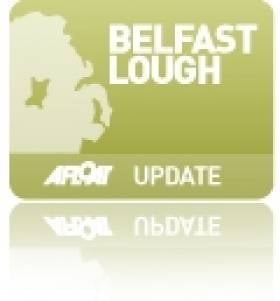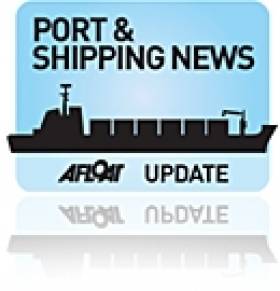Displaying items by tag: Port Traffic
Belfast Harbour Notice: Changes to Navigation and Traffic Aids
#BELFAST HARBOUR - Mariners using Belfast Harbour are advised of a number of changes made to buoys placed in Belfast Lough to aid in navigation and traffic management.
The existing Fairway Buoy has been moved east northeast (ENE) to a new position, while four new buoys have been added - two at the main approach to the Port of Belfast, and two further out in the lough at Kilroot and Helen's Bay.
Vessels heading into the Port of Belfast are to pass north of the repositioned Fairway Buoy, while outward vessels must now pass south of the buoy, both reporting to Belfast Harbour Radio on VHF Channel 12.
Moreover, all vessels arriving to and departing from Belfast Harbour, when proceeding to or from anchorages or other berths within Belfast Lough, are requested to make contact with Belfast Harbour Radio to confirm their passage plans whether inbound (15 minutes from the Fairway), outbound (on passing Beacon No 12) or on heaving anchor.
Full details of co-ordinates of the new buoy placements are included in Belfast Harbour Notice No 20 of 2012, a PDF of which is available to read or download HERE.
Shipping Volumes Up in First Quarter
First quarterly figures for 2011 show that volumes of shipping and port traffic on the majority of principal sectors grew, according to the Irish Maritime Development Office (IMDO).
The figures below outline a moderate trade volume growth in four out of the five key freight segments: Lift-on/ lift-off (lo-lo), Roll-on/Roll-off (ro-ro),dry-bulk, break-bulk and the tanker/liquid market.
• Total lift-on/ lift-off (lo/lo) trades volumes grew by 3%.
• Roll-on/Roll-off export traffic was also up 2% per cent on an all island basis.
• Dry bulk volumes through ROI ports increased by 21%,
• Breakbulk volumes were also up 25%
• The tanker/liquid market was the only sector to record a decline, down by -12% compared to the same period last year.
For further information about the figures, charts and a summary released from the IMDO click here































































